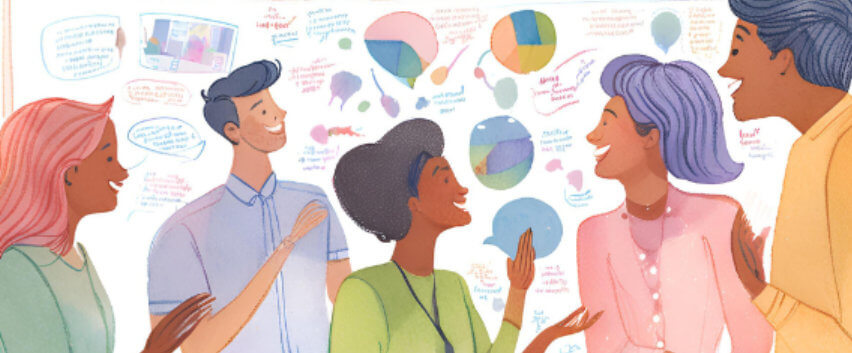5 Ways to Show Empathy at Work

In a fast-paced world where deadlines, KPIs, and digital tools often dominate our focus, the ability to truly connect with others can set teams apart and transform office dynamics.
In fact, empathy training is quickly becoming one of the most in-demand tools across industries like business, healthcare, and tech. But what does empathy look like in action, especially in the office? Let’s explore five simple but powerful ways to show empathy in your workplace—and why they matter.
1. Listen to Understand, Not Just to Respond
We’ve all been in meetings where people wait to speak instead of truly listening. Empathetic listening means giving full attention, asking thoughtful follow-ups, and avoiding interruptions. This creates space for trust and innovation.
“Empathy is about finding echoes of another person in yourself.” —Mohsin Hamid
Pro tip: Repeat back what someone said in your own words to show you’re aligned. This is a classic technique in empathy training.
2. Acknowledge Emotions Without Trying to Fix Everything
Sometimes your coworker doesn’t need a solution—they just need validation. Recognizing someone’s feelings, even with a simple “That sounds really frustrating,” builds rapport.
This is especially effective in healthcare settings, where recognizing patient emotions can improve outcomes and reduce burnout.
3. Offer Help Without Being Asked
When you notice a colleague is overwhelmed, offering help proactively (e.g., “Want me to take notes while you lead the presentation?”) shows care and initiative. These acts build a culture of support and can even prevent team fatigue.
Another ways to show empathy:
4. Be Inclusive in Conversations and Decisions
Whether it’s inviting a quieter teammate to share their thoughts or checking in on remote colleagues, small gestures of inclusion go a long way. Empathy in leadership means ensuring everyone feels heard and valued.
Empathy training often includes role-play scenarios that build awareness around unconscious bias and exclusion.
5. Show Gratitude Regularly
Saying “thank you” and recognizing effort—especially in public—helps team members feel seen. A 2023 study from the Harvard Business Review showed that teams with high psychological safety, often built through gratitude and empathy, performed 27% better than their peers.
Why Empathy Is More Than Just “Being Nice”
Empathy is a soft skill that directly impacts communication, trust, and results. It fuels understanding between departments, improves customer service, and reduces conflict. In healthcare, it increases patient satisfaction and reduces provider fatigue. In tech, it results in better UX. In HR, it strengthens team culture.
“Leadership is not about being in charge. It is about taking care of those in your charge.” —Simon Sinek
Whether you’re a team lead or a junior employee, investing in your empathy skills can help you rise—professionally and personally.
Ready to take your team to the next level? Empathable offers a science-backed empathy training program that blends research with engaging storytelling and practical exercises. Designed for professionals across industries, it’s not your typical training—it’s a transformative experience.
If you’re looking to build deeper connections, improve workplace communication, and drive better results, check out Empathable’s unique program today.
👉 Discover Empathable’s empathy training – built on science, designed for real impact.
